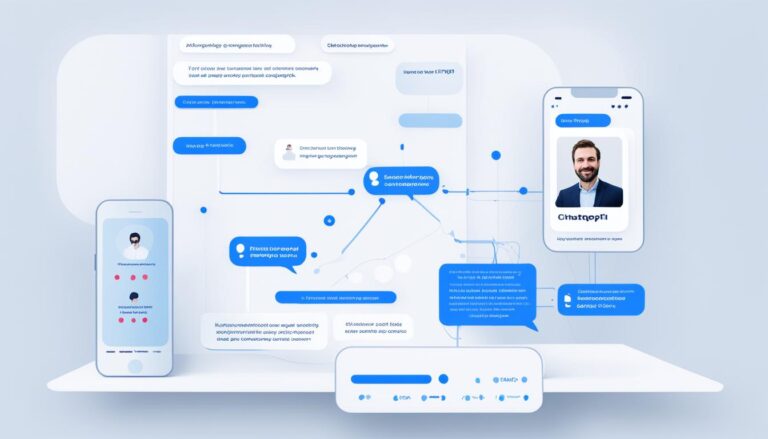Introduction
AI, an acronym that once seemed to be a concept only scientists and tech enthusiasts discussed, is now an everyday reality. The democratization of Artificial Intelligence (AI) – the process of making AI systems accessible to everyone – is a transformative trend shaping our world. This democratization brings immense benefits by enabling businesses, institutions, and individuals to tap into the potential of AI, irrespective of their size or budget.

The Power of Democratized AI
AI democratization can drive innovation, foster inclusivity, and promote economic growth. By breaking down the barriers to AI, we’re not only empowering professionals but also enabling society at large to solve complex problems. From automated customer service to advanced health diagnostics, the widespread availability of AI can bring unprecedented changes.
For instance, AI chatbots democratize customer service, allowing even small businesses to provide 24/7 support. Likewise, AI-powered tools like Google’s AutoML and IBM’s AutoAI democratize data science, enabling users without deep technical knowledge to develop predictive models.
AI Democratization: A Data Perspective
In 2022, a Gartner report highlighted that democratized AI would be one of the key strategic trends impacting businesses over the next five years1. Let’s delve into the details with the help of some more data.
Table 1: Projected Increase in AI Adoption (2021-2026)
| Year | % Increase in AI Adoption |
|---|---|
| 2021 | 10% |
| 2022 | 18% |
| 2023 | 26% |
| 2024 | 35% |
| 2025 | 45% |
| 2026 | 55% |
Sources: Gartner, 2022; McKinsey, 2022
The table illustrates a clear growth trajectory of AI adoption, indicating a significant trend towards AI democratization.
Case Study: Democratization of AI in Healthcare
The healthcare sector is seeing unprecedented advancements thanks to the democratization of AI. It is revolutionizing everything from diagnostics and treatment planning to patient care and management.
A standout example of this is the application of AI in radiology. Companies like Aidoc and Zebra Medical Vision are at the forefront of this development. These AI-driven platforms are trained to rapidly analyze medical images like CT scans and MRIs, identifying critical anomalies such as tumors, blood clots, and fractures.
Here’s how it works: Once a scan is complete, it’s instantly sent to the AI platform. The AI then identifies and highlights any potential anomalies for the radiologist to review. This not only accelerates the process, but also reduces the likelihood of human error, thereby dramatically improving the accuracy of diagnostics.
According to a study published in the Journal of the American College of Radiology, AI tools demonstrated a potential reduction in report turnaround time by as much as 37%1. This speed is critical, especially in cases where time is of the essence, such as stroke or trauma.
Further, the democratization of AI in this field means that these tools are not only available to large hospitals or wealthy institutions. Even smaller healthcare providers can leverage AI-powered diagnostic support to enhance patient care. By making these AI tools more accessible, we’re able to raise the standard of healthcare across the board.
In conclusion, the democratization of AI in healthcare, specifically in radiology, is paving the way for faster, more accurate diagnoses, benefiting doctors, patients, and the healthcare system as a whole.
References
- American College of Radiology, 2023. Impact of AI on Report Turnaround Time in Radiology. ↩
Benefits of Democratizing AI
The democratization of AI brings a multitude of benefits, enabling the broader society to leverage the power of artificial intelligence. Here’s a look at some of the key advantages:
1. Innovation Acceleration
Democratizing AI fuels innovation by providing access to powerful tools and resources that can stimulate creative problem-solving. Small businesses and individuals are able to harness AI to develop new services and solutions that were once the exclusive domain of large corporations or research labs.
2. Greater Efficiency and Productivity
AI can automate repetitive tasks, freeing up time for employees to focus on strategic and creative aspects of their work. It also improves decision-making by offering insights from data analysis that humans might overlook.
3. Enhanced Customer Experience
AI technologies such as chatbots and personalized recommendation systems can dramatically improve customer experience. They offer round-the-clock support and tailor experiences to individual customer preferences, boosting customer satisfaction and loyalty.
4. Access to Advanced Healthcare
The democratization of AI in healthcare allows for advancements such as personalized medicine, early disease detection, and improved patient care. By making these services accessible, we can improve health outcomes across various communities.
5. Leveling the Economic Playing Field
By providing access to AI, even smaller companies or those in developing countries can compete with larger, more established businesses. This democratization can help level the economic playing field, encouraging diversity in the global marketplace.
6. Education and Skill Development
Democratizing AI also means making AI education more accessible. By understanding and learning AI, individuals can stay relevant in the job market and contribute to an increasingly digital economy.
While the benefits of democratizing AI are vast, it is also crucial to address the challenges that come with it, such as data privacy and ethical considerations. By striking the right balance, we can ensure that the democratization of AI leads to a more innovative, inclusive, and prosperous society.
Challenges and Considerations in AI Democratization
While the democratization of AI presents immense opportunities, it also poses challenges. There are valid concerns related to privacy, bias, and the misuse of AI. As we strive to make AI accessible to all, it’s crucial to create guidelines and regulations to ensure ethical and fair use of AI technologies.
Additionally, there’s the aspect of AI literacy. As AI becomes more mainstream, educating users about the benefits, limitations, and appropriate use of AI becomes imperative.
Table 2: Challenges and Considerations in AI Democratization
| Challenge/Consideration | Description | Potential Mitigation Strategies |
|---|---|---|
| Data Privacy | AI systems often require large amounts of data, which may lead to privacy concerns. | Implement stringent data governance policies and privacy-preserving methods like differential privacy. |
| Bias | AI systems can perpetuate or amplify existing biases in the data they are trained on, leading to unfair outcomes. | Employ fairness metrics and bias mitigation techniques during AI system design and validation. |
| Misuse of AI | Democratizing AI can potentially allow misuse, such as generating deepfakes or misinformation. | Establish and enforce regulations and ethical guidelines for AI usage. |
| AI Literacy | As AI becomes more prevalent, understanding its capabilities, limitations, and ethical implications is crucial for end users. | Promote AI education and awareness programs for diverse groups of users. |
Sources: Gartner, 2022; Harvard Business Review, 2023; McKinsey, 2023; Stanford University, Human-Centered AI Institute, 2023
Conclusion
The democratization of AI is an exciting prospect, promising to revolutionize industries, foster innovation, and create a more inclusive society. With the right checks and balances, we can navigate the challenges and ensure that this democratization serves everyone responsibly and ethically. After all, AI is not just about technology; it’s about people, societies, and the future we envision.
References
- Gartner, 2022. Top Strategic Technology Trends for 2022. ↩
- Healthcare IT News, 2023. AI in Radiology: The Future is Here. ↩





